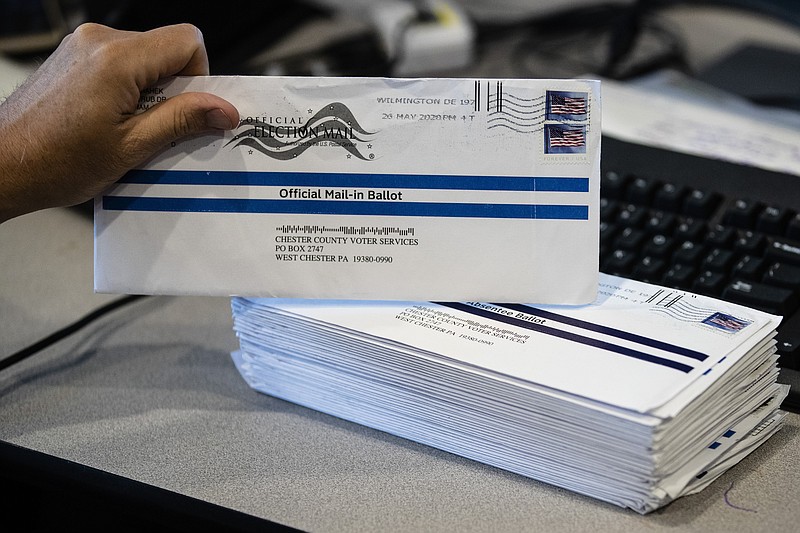Without the option of mail-in ballots, many states run the risk of electoral chaos in the November election. The COVID-19 pandemic will likely persist to then and could become intermingled with seasonal flu.
The Wisconsin primary election on April 7 offered a preview of voting amid the uncertainty of widespread infection. Thousands of poll workers declined to work, fearful of the risk of contracting illness. This led to last-minute closure of multiple polling stations. Milwaukee had five polling stations instead of its usual 180. Many voters did not learn where to cast their ballots until the last minute. Some voters waited in long lines for hours. Polling stations extended their hours to accommodate those who waited. Unknown numbers of potential voters simply went home rather than wait.
Five states conduct all elections exclusively by mail. Every registered voter receives a mail-in ballot before each election. The process has proved efficient and cost-effective. Fraud has not been a problem. Oregon led the way, approving mail-in ballots in 2000. Washington (2011), Colorado and Utah (2013). Hawaii (2020) subsequently adopted the procedure.
Twenty-five states allow any registered voter to apply for a mail-in ballot without explanation. An excuse is required in the remaining states.
Tennessee allows absentee ballots for registered voters aged 60 and over and for individuals who are frail or suffer chronic illness that limits activity. On June 4, Davidson County Chancellor Ellen Hobbs Lyle ruled that, because of the danger posed by COVID-19, all registered voters could request absentee ballots for this year's elections. The state appealed her ruling to the Tennessee Supreme Court, but that body will not consider the appeal until after the August primary.
In Georgia, any registered voter may request an absentee ballot. In an effort to encourage voting from home during the COVID-19 pandemic, Georgia's secretary of state mailed almost seven million forms for requesting absentee ballots to that state's voters before a recent primary election. More than one million voters cast absentee ballots, overwhelming the system and delaying results, sometimes for days.
On July 2, the U.S. Supreme Court blocked by a 5-4 vote a lawsuit to simplify absentee voting in Alabama. The state requires that a request for an absentee ballot must be certified by two notaries public. The suit sought to ease this requirement and to allow curbside casting of ballots. Plaintiffs sought these changes because of the predicted impact of COVID-19 on voting in November.
Early, in-person voting is another method of facilitating voting. This permits older people or persons with jobs that would prevent their casting their ballots on Election Day to vote at designated stations. The length of early voting varies among states from four to 45 days before Election Day. Some states also permit early voting on weekends.
Fundamental to democracy is the right of the governed to vote in free, open elections for their representatives in governmental assemblies. They may also vote on proposals such as expansion of Medicaid. Governors and legislators in many states make the process of voting difficult. President Trump and Attorney General Barr strongly oppose voting by mail. Without providing any evidence, Barr stated in a June 24 interview that voting by mail "absolutely opens the flood gates to fraud."
What are the motives of opponents to mail-in voting? Do they wish to suppress the vote of people whom they fear might vote against them? Do they not understand the barriers that poor or elderly or rural voters face in accessing polling places? Voting should not be a partisan issue. Every politician, every elected official should embrace the right to vote and work to make the process as convenient as possible.
Contact Clif Cleaveland at ccleaveland@timesfreepress.com.
